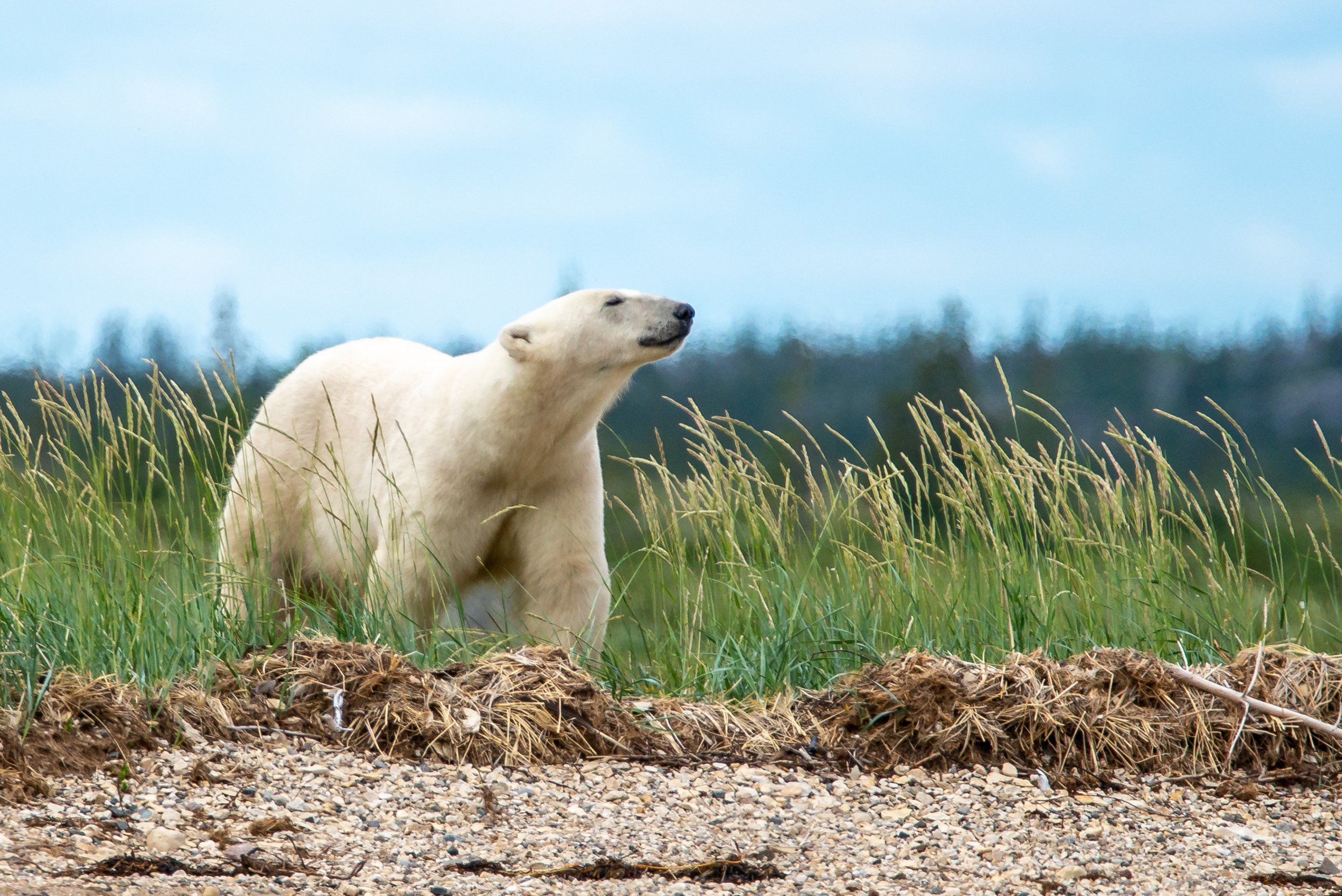
POLAR BEARS
Polar Bears (Ursus maritimus)
The polar bear (Ursus maritimus) is the world’s largest carnivorous land mammal and is found in the Arctic region. It’s certainly a giant, with adult males weighing up to 680 kilograms and measuring about 10 feet (3 meters) in length. The bear's most distinctive feature is its snow-white fur, composed of a dense undercoat and long, colourless guard hairs that appear white due to the way they diffuse light. Its strong, non-retractable claws and large front paws, equipped with slight webbing, are ideal for swimming and walking on ice. The polar bear's keen sense of smell, helps it locate prey, primarily seals. This remarkable combination of adaptations makes the polar bear a pretty formidable predator!
Peak Wildlife Park is home to two amazing polar bears Nanook and Noori. The two cubs joined us from Orsa Predator Park back in August of 2023. This relocation came as a result of the closure of their old home and the need to find a suitable rehoming solution for these incredible animals. The cubs, Nanook and Noori, were born at Orsa in November 2021.
The polar bear relocation has been a collaborative effort between the European Association of Zoos and Aquaria’s (EAZA) European Ex-situ Programme (EEP) for polar bears, Orsa and Peak Wildlife Park, with a shared goal of ensuring the well-being and conservation of this iconic Arctic species.
The bears' new habit is over 5 acres, complete with deep ponds, rugged terrain, and space for the bears to roam and engage in a range of natural behaviours. We’ve worked hard to ensure that the bears’ new home is compatible with their former enclosure at Orsa, hopefully ensuring as seamless a transition for the bears as possible.


